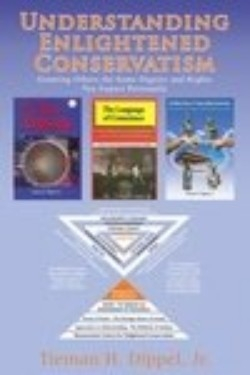
Understanding Enlightened Conservatism
Granting Others the Same Dignity and Rights You Expect Personally
The cause of America is in a great measure of all mankind. Many circumstances have and will arise which are not local but universal and through which the principles of all lovers of mankind are affected and are interested…Society in every state is a blessing…For were the impulses of conscience clear uniform and irresistibly obeyed man would need no other lawgiver…
— Thomas Paine Common Sense
Although Thomas Paine’s infamous pamphlet Common Sense was published during the American Revolution in 1776 it has as much relevance today as it did 232 years ago especially when one must make a choice of conscience or convenience. No one knows this better than Tieman H. Dippel. Jr. In an interview with PrivateClubs Magazine Online he said “Conscience dominates on an individual level; convenience almost always dominates the higher you rise in power. The only way to get conscience into power is to have the culture fully appreciate why conscience is important…”
Dippel’s new book Understanding Enlightened Conservatism at first glance seems like little more than a summary or abridgement of the three books in his award-winning Language of Conscience series—The New Legacy The Language of Conscience and Instilling Values in Transcending Generations. But this new book proves to be more than a Cliff’s Notes version of the Language of Conscience Series; it is another appendage that adds to the greatness of the entire organism.
The beauty of Enlightened Conservatism and the evidence of Dippel’s genius are in his flexibility and his deep comprehension of human nature. He understands that discussing free will conscience and convenience without application to everyday life as well as politics and economics is as useful as the medieval religious argument about how many angels can dance on the head of a pin. Dippel believes that the only way that we as a species can lead lives of conscience is to educate our youth. This is a difficult endeavor particularly in the United States where our progeny are inundated by media that perpetuate the misconceptions of other cultures and show celebrities as role models. The powers-that-be at these media companies promote instant gratification and short-term profits over long term results within a big picture. Dippel writes “If internal stability and culture disintegrate the strength of the society disintegrates and the common good is lost.”
To bridge Eastern and Western cultures Dippel has based Enlightened Conservatism in the Golden Rule of Christ and the Silver Rule of Confucius “that look to treating others as you wish to be treated are cultural power which give the base of the common good that is a political concept.” He has discovered that most of the cultures of the world have a maxim that is similar to the Golden Rule. Treating others as you would have them treat you really comes down to common sense. Sometimes it takes a man like Dippel to point out the common sense of the language of conscience that seems to have been “conveniently” forgotten.
Dippel remains optimistic about our species. “To me the future is brighter than many people think because the world will face crisis but crisis brings a desire for wisdom” he writes. “And a leadership is becoming more prepared and thoughtful than is probably perceived by our reading of the media. Values will be seen to matter because sacrifice toward a solution necessitates a vision of the future and a willingness to care beyond self.”
Reviewed by
Lee Gooden
Disclosure: This article is not an endorsement, but a review. The publisher of this book provided free copies of the book and paid a small fee to have their book reviewed by a professional reviewer. Foreword Reviews and Clarion Reviews make no guarantee that the publisher will receive a positive review. Foreword Magazine, Inc. is disclosing this in accordance with the Federal Trade Commission’s 16 CFR, Part 255.
